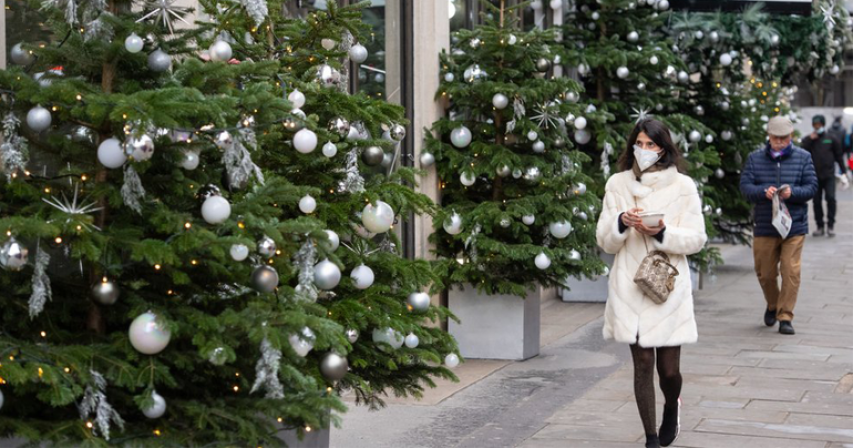Christmas rules tightened for England, Scotland and Wales
- 4 years ago

The planned relaxation of Covid rules for Christmas has been scrapped for large parts of south-east England and cut to just Christmas Day for the rest of England, Scotland and Wales.
From midnight, a new tier four will be introduced in areas including London, Kent, Essex and Bedfordshire.
Those in tier four cannot mix indoors with anyone not from their household.
Elsewhere in England, Scotland and Wales, relaxed indoor mixing rules are cut from five days to Christmas Day.
Prime Minister Boris Johnson announced the changes for England at a Downing Street briefing after scientists said a new coronavirus variant was spreading more rapidly.
Tier-four restrictions - similar to England's second national lockdown - will apply in all areas in the South East currently in tier three, covering Kent, Buckinghamshire, Berkshire, Surrey (excluding Waverley), Gosport, Havant, Portsmouth, Rother and Hastings.
It will also apply in London (all 32 boroughs and the City of London) and the East of England (Bedford, Central Bedford, Milton Keynes, Luton, Peterborough, Hertfordshire, Essex (excluding Colchester, Uttlesford and Tendring).
In Scotland, Covid restrictions will only be relaxed on Christmas Day, with mainland Scotland being placed under the tightest restrictions from Boxing Day.
Outlining the changes, Scotland's First Minister Nicola Sturgeon said she wished she had acted quicker to curb the virus in February, adding: "Standing here saying this actually makes me want to cry."
A ban on travel to the rest of the UK will also apply over the festive period.
In Wales, First Minister Mark Drakeford announced that the country will be placed under lockdown from midnight.
In Northern Ireland, no changes have been made to Christmas restrictions, with three households allowed to meet from 23 to 27 December. The country is set to enter a six-week lockdown from 26 December.
For tier-four areas in England, a stay-at-home order has been issued, with exemptions for those who have to travel to work or for education.
Social mixing will be cut to meeting one person in an open public space.
All non-essential retail will have to close, along with hairdressers, nail bars, indoor gyms and leisure facilities.
People elsewhere will be advised not to travel into a tier-four area.
The restrictions will last for two weeks, with the first review due on 30 December.
Mr Johnson told the Downing Street briefing he knew how "disappointing" the news would be, but said he believed there was no alternative open to him.
When the virus changes its methods of attack, he said, "we must change our method of defence".
Mr Johnson acknowledged it was "unquestionably a difficult moment" in the coronavirus crisis but insisted that things would be "radically different" by Easter due to the vaccine.
He did not confirm whether police would be told to stop people travelling home over the festive period or knock on doors on Christmas Day.
Mr Johnson said analysis suggested the new variant could increase the the R number by 0.4 or more.
Although there is "considerable uncertainty", it may be up to 70% more transmissible than the old variant, he said.
England's chief medical officer, Prof Chris Whitty, said that while the new variant of coronavirus will make things much worse, if the vaccine works against it there was room for optimism.
He has previously said there is no current evidence to suggest the new variant causes a higher mortality rate or that is affected any differently by vaccines and treatments.
Speaking at the Downing Street briefing, he added: "I think this is a situation which is going to make things a lot worse, but there are some really optimistic things if you look once we get the vaccine out, assuming the vaccine works against this, which at the moment is the working assumption."
Sir Patrick Vallance, the government's chief scientific adviser, urged the public to assume they might be infectious when considering meeting others over Christmas.
Comments